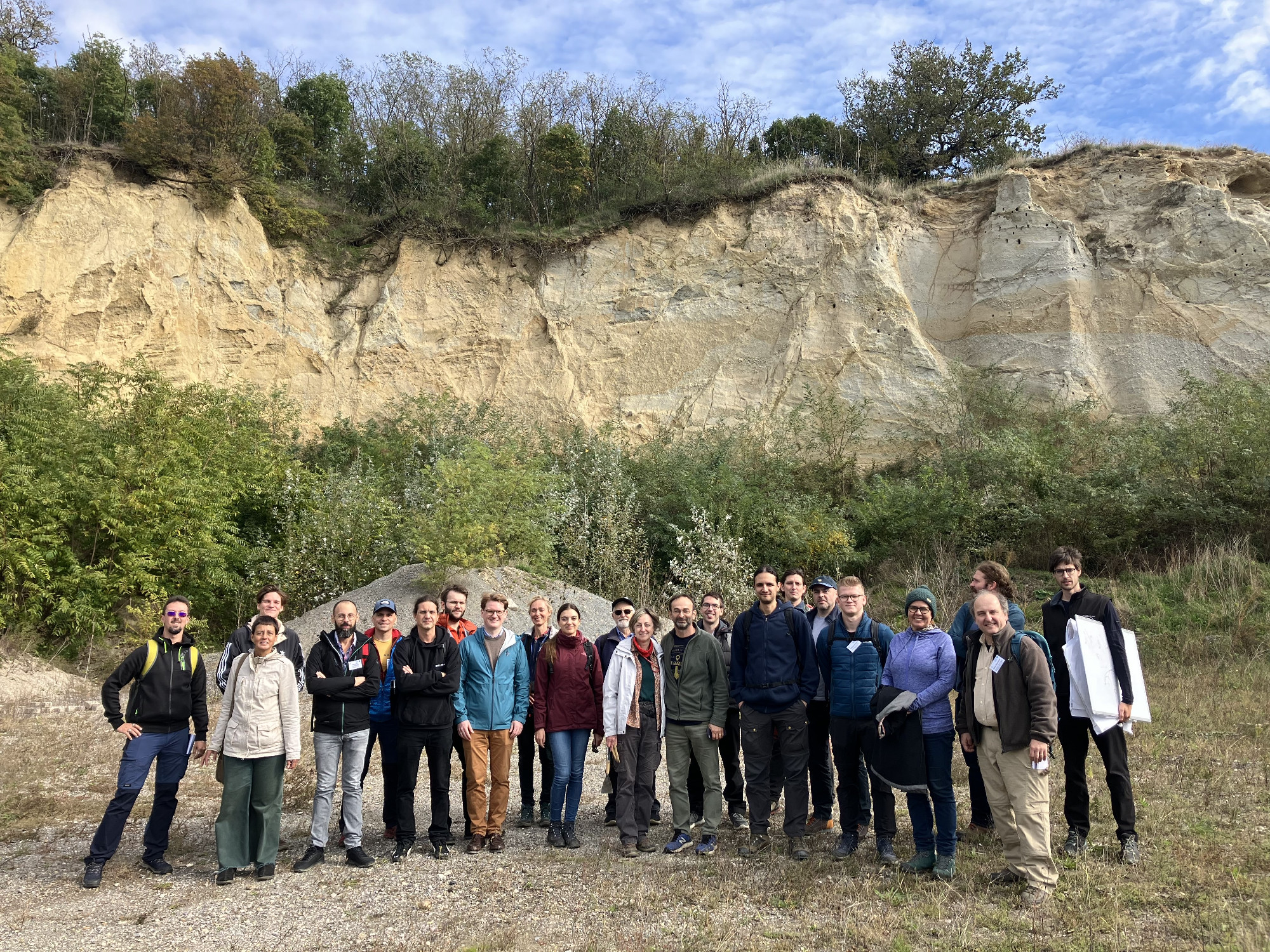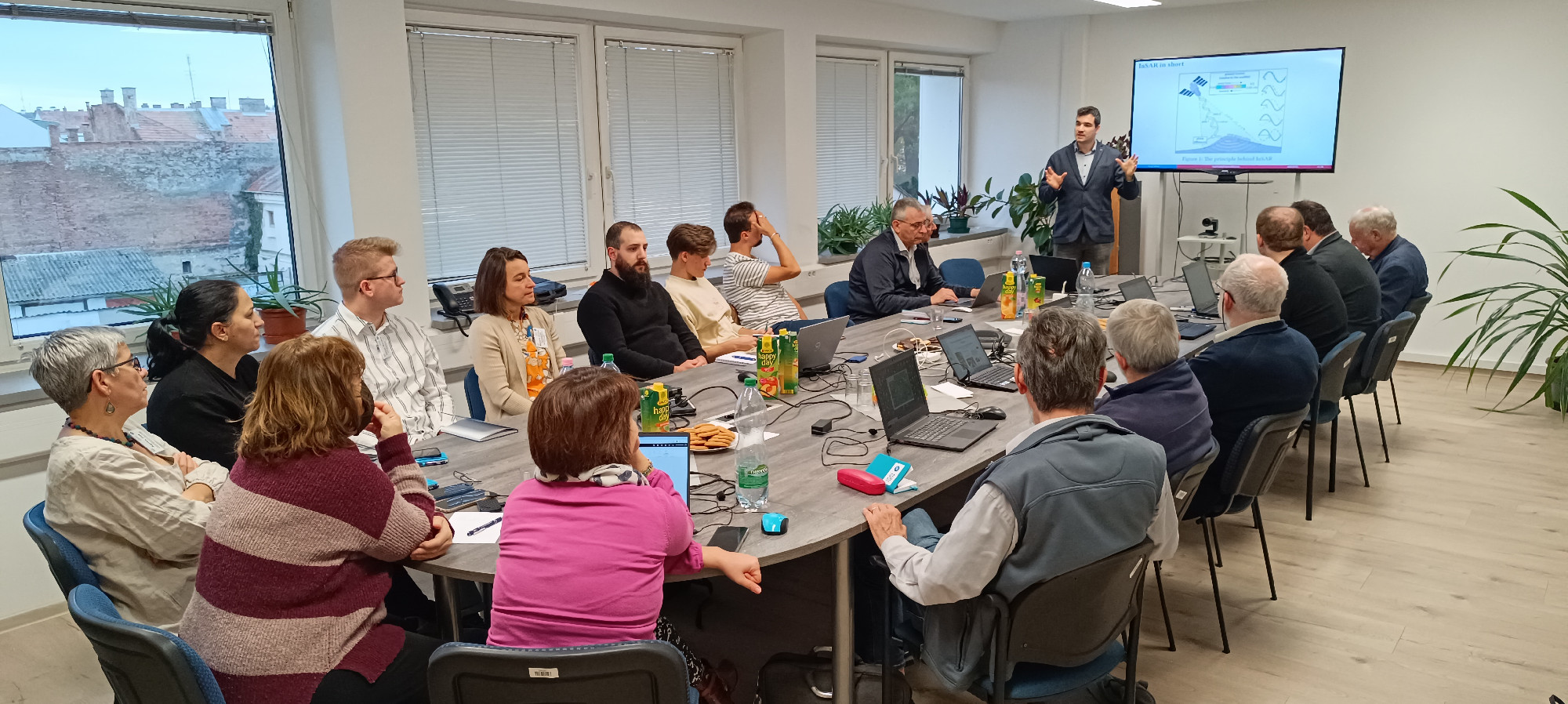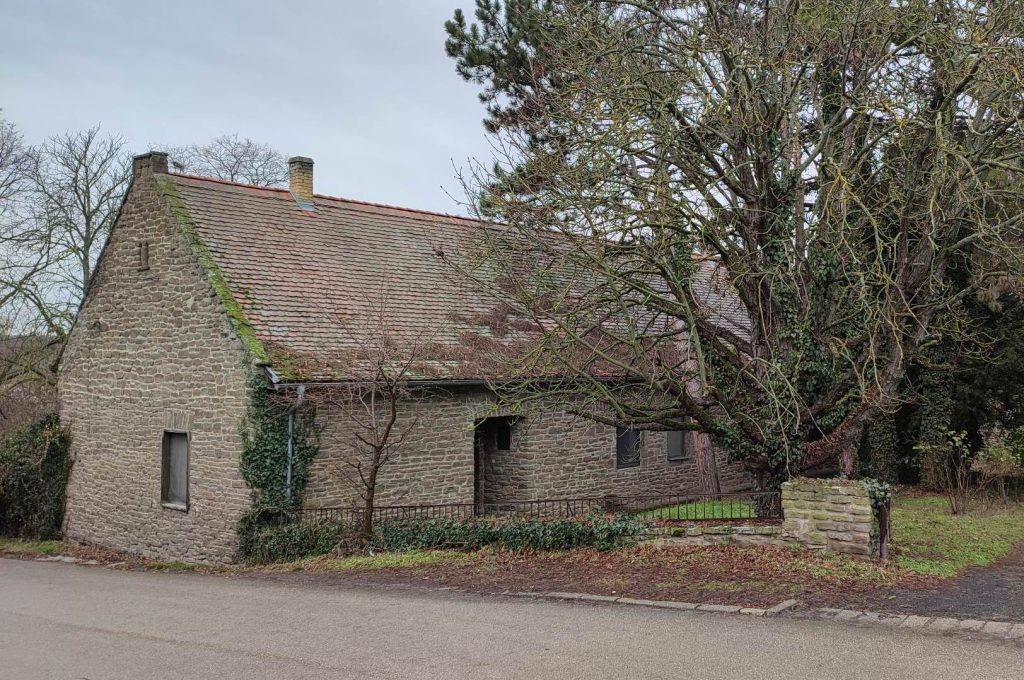Busy autumn months at the Institute of Earth Physics and Space Science: International workshop and study tour
In October, the HUN-REN Institute of Earth Physics and Space Science (HUN-REN EPSS) hosted the international TOPO-EUROPE workshop. Prior to that, their Tihany Geophysical Observatory welcomed colleagues from the Satellite Geodetic Observatory in Penc and the Budapest University of Technology and Economics.
This year’s international TOPO-EUROPE workshop, organised by HUN-REN EPSS, attracted even greater interest than last year’s event, with over 60 participants from 10 European countries, primarily researchers and representatives from industry and applied science organisations. (The event was supported by the Science Patronage Programme [MEC_SZ 149113].)
The event (the detailed programme is available here) began with a field trip, during which participants visited several local geological sites along the Austrian-Hungarian border. The field trip was led by Gábor Tari (Chief Geologist at OMV in Vienna) and Kristóf Porkoláb (Scientific Associate at HUN-REN EPSS). The workshop's lecture day was opened by Balázs Gulyás, President of HUN-REN, and was followed by a public plenary lecture by Sierd Cloetingh, former President of Academia Europaea, entitled "Quo vadis TOPO-EUROPE?"

This was followed by scientific presentations featuring contributions from prestigious European universities, research institutes, and industry players. The workshop was organised around two main themes: one focused on the interactions between processes occurring deep within the Earth and at the surface, and the other on geoenergetics and geological risks.
After the lecture day, researchers and industry representatives participated in group discussions, where they explored specific project ideas and summarised the activities of an ongoing EU-COST project (EUROBIG), which originated from last year's TOPO-EUROPE workshop. As a result of the workshop, a new COST proposal on natural hydrogen research was submitted, and an EU call for proposals to launch a broad PhD programme is being organised, as confirmed by HUN-REN EPSS.

All scientific publications resulting from the findings presented at the TOPO-EUROPE workshop and the Krakow meeting of the International Lithosphere Programme will be compiled in a special issue of the prestigious journal Global and Planetary Change. In conjunction with the Sopron event, the latest meeting of the Dutch-Hungarian-Romanian Topo-Transylvania collaboration also took place, focusing on the geodynamics of the Vráncsa zone, one of the most seismically hazardous areas in Europe.
Following the success of last year's and this year's TOPO-EUROPE meetings, it has become clear that HUN-REN EPSS in Sopron will be the permanent venue for the annual TOPO-EUROPE workshops. The next meeting is scheduled for autumn 2025.
Prior to the October workshop, colleagues from the Satellite Geodetic Observatory (SGO) in Penc and the Budapest University of Technology and Economics visited HUN-REN EPSS's Tihany Geophysical Observatory.
According to HUN-REN EPSS, the visit marked the first step towards establishing long-term cooperation between the three institutions. The parties discussed the details of installing an integrated satellite geodetic station, which would form part of the national Integrated Satellite Altimetry Reference Network developed and maintained by SGO. Its main components include a permanent GNSS station and a dual radar reflector designed to reflect microwaves from Sentinel-1 satellites with high coherence.
The GNSS station will be provided by SGO, while the pair of radar reflectors will be manufactured and installed based on a design developed through the HUN-REN EPSS-BME collaboration. The integrated station could provide valuable data to all three institutions. Real-time GNSS data would be incorporated into SGO's GNSS service, while near real-time data could be utilised by BME and HUN-REN EPSS for research into the neutral atmosphere (troposphere) and the ionised upper atmosphere (ionosphere). Long-term GNSS data analysis by SGO would allow the station's absolute displacement to be estimated. This data could be used to validate the movement of the radar reflectors, as determined from Sentinel-1 imagery, and to contribute to the national surface displacement model developed by SGO.
At the end of the visit, the participants expressed their joint intention to plan the installation works and to draw up a contract that would lay the foundations for long-term cooperation.


